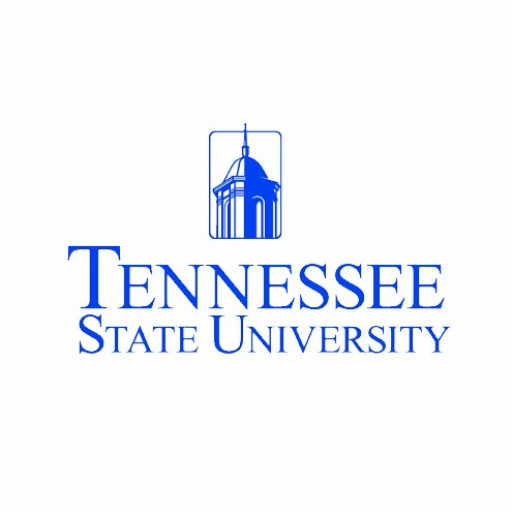Photos of university / #pennstate
The Bachelor of Science in BioRenewable Systems at The Pennsylvania State University is an interdisciplinary program designed to prepare students for careers in the growing renewable energy and sustainable resource industries. This program integrates principles from engineering, environmental science, agriculture, and economics to provide a comprehensive understanding of biomass production, conversion, and utilization technologies. Students will gain knowledge in areas such as bioenergy, biofuels, bioproducts, and bioprocessing, equipping them with the skills necessary to innovate and implement sustainable solutions for energy and material needs.
Throughout the curriculum, students are engaged in coursework that covers a wide range of topics including biomass feedstock development, chemical and biochemical conversion processes, environmental impacts of renewable energy systems, and policy and economic considerations related to bioenergy. Practical laboratory exercises and hands-on experiential learning are incorporated to enhance technical proficiency. The program also emphasizes the importance of sustainability, lifecycle analysis, and environmental stewardship, ensuring graduates are prepared to address global challenges related to energy security and environmental protection.
In addition to technical training, students develop critical skills in problem-solving, project management, and interdisciplinary collaboration through team projects and research opportunities. The program offers specializations and electives that enable students to tailor their education towards bioenergy production, bioproduct development, or policy and management. Close partnerships with industry leaders and research institutions provide students with internship opportunities, real-world experience, and networking possibilities that enhance their career prospects.
Graduates of the BioRenewable Systems program are well-equipped to pursue careers in renewable energy companies, government agencies, research laboratories, and agricultural enterprises. They can also advance to graduate studies or entrepreneurial ventures aimed at advancing sustainable bio-based industries. With a curriculum rooted in both theoretical foundations and practical applications, this program prepares students for innovative roles in building a more sustainable and energy-resilient future.
All candidates for the M.S. degree must prepare and complete a thesis, complete a minimum of 30 credits at the 400-level or higher (including a minimum of 18 credits at 500-level or higher and a minimum of 6 credits of research), and obtain a minimum grade-point average of 3.00. Only courses in which grades of C or better are earned may be counted toward the requirements of the master’s degree. Each program must include BRS 500 Research Methods, BRS 501 Biobased Polymers, and BRS 502 Human Behavior in Management and Technology, two courses from the list of electives in graduate syllabus and at least one statistics course. A total of at least 18 credits must be from 500-level or above courses. All requirements for a master of science degree, whether satisfied at Penn State or elsewhere, must be met within eight years from the first semester of graduate study.
500-Level Courses
- BRS 500 Research Methods in BioRenewable Systems (3): Intro. to research philosophies, methodologies, issues and policies; measures of research quality; research report writing; research ethics.
- BRS 501 Bio-based Polymers (3): The chemistry, structure-property relationships, and industrial applications of biobased polymers from plant and agricultural feedstocks.
- BRS 502 Biobehavioral Science in Management and Technology (1): Develop an understanding of the relationship between human behavior and professional activities including management, leadership, and ethical decision making.
- BRS 511 Advanced Structural BioComposites (3): Manufacture and practices related to the production of engineered biocomposites processed from lignocellulosic materials.
- BRS 550 Applied Bioproducts Marketing(3): Marketing applications for solid and engineered wood products and biorefinery value chain outputs (environmental services, energy, fuels, & co-products).
- BRS 551 Sustainable Business Strategies (2): Coverage of business strategies that relate to sustainability and environmental issues.
- BRS 590 Colloquium (1-3): Continuing seminars which consist of a series of individual lectures by faculty, students, or outside speakers.
- BRS 594 Research Topics (1-9): Supervised student activities on research projects identified on an individual or small-group basis.
- BRS 595 Internship (1-6): Supervised, research-oriented, off-campus, nongroup instruction, including field experiences, practicums, or internships.
- BRS 596 Individual Studies (1-9): Creative projects, including nonthesis research, which are supervised on an individual basis and which fall outside the scope of formal courses.
- BRS 597 Special Topics (1-9): Formal courses given on a topical or special interest subject which may be offered infrequently; several different topics may be taught in one year or term.
- BRS 600 Thesis Research (1-15): No description.
- BRS 602 Supervised Experience in College Teaching (1-3 per semester / maximum of 6): Provides an opportunity for supervised and graded teaching experience in biorenewable systems courses
- An undergraduate degree in an engineering program is not a requirement for our BRS Graduate Program.
- All students must submit scores from the General Aptitude Test of the Graduate Record Examination (GRE) prior to admission. There is no minimum GRE score required for admission, as this is only one of several qualifications considered in the admission review process. However, financial assistance is often influenced by GRE scores and grade point averages (GPAs).
- International students must obtain a TOEFL (Test of English as a Foreign Language)or the IELTS (International English Language Testing System). The minimum acceptable score for the TOEFL is 550 for the paper-based test, 213 for the computer-based test, or a total score of 80 with a 19 on the speaking section for the internet-based test. The minimum composite score for the IELTS is 6.5. The TOEFL exam must be taken within three years of the application date.
- Statement of Purpose. Please submit a 1- to 2-page (2-page maximum) written essay describing your purpose in pursuing graduate study. You may want to include the following types of information in your statement:Reasons for wanting to pursue a graduate degree; Specific area of interest within the degree you plan to pursue; Long-term plans for professional career; Experiences from previous graduate or professional work that have influenced your decision to pursue graduate study; Previous experience in engineering design, research, and/or teaching and outreach; Other information that will help us to better understand your purpose for applying to join our graduate program.
- Resume or Curriculum Vita
- Letters of Recommendation. Three letters of recommendation are required from teachers and/or professional colleagues, who are knowledgeable about your character and qualifications as they relate to your potential to succeed in an advanced graduate degree program. You can identify them in the online application. You may provide four letters of recommendation if you are concerned that one of your references may not provide a letter by the deadline. Applications which do not have 3 letters of recommendation by the deadline will not be reviewed. Note: Please do NOT submit Individual Education Plans (IEPs), medical records, statements from medical physicians or psychologists, legal documents, or and other documents that have not been requested, especially if they have personal identifiable information. No documents will be returned! Admission into the ABENG and BRS graduate programs in the Department of Agricultural and Biological Engineering is granted jointly by the graduate school and the department. No single item is used to determine your admission status. Therefore, it is important that you provide all the requested information below promptly for processing your application.
- Official Transcripts. Scan official transcripts from each institution of higher education attended, both undergraduate and graduate. Upload scans of official transcripts to online application. Notarized copies are not sufficient. International applicants must submit official or attested university records, with certified translations, if the records are not in English.Graduate School will request official transcripts when an offer of admission is accepted.
Scholarships
The department currently offers financial assistance as: Departmental Assistantships, Grant-Based Assistantships, and Fellowships. To be eligible for these sources of financial assistance, a graduate applicant must complete the Graduate Application Form. Whereas the Department of Agricultural and Biological Engineering would like to provide financial assistance to all qualified students, financial assistance is generally awarded on a competitive basis considering qualifications such as GRE scores, GPAs in previous undergraduate and graduate programs, letters of recommendation, and statements of purpose.
Applications for admission and assistantship support will be accepted at any time, but decisions regarding financial assistance are generally made before January 31 (for August admission) and September 1 (for January admission).
The BioRenewable Systems program at The Pennsylvania State University is an interdisciplinary undergraduate major designed to prepare students for careers in the renewable energy and bioproducts industries. This program integrates principles from engineering, biology, chemistry, and environmental science to develop sustainable solutions for energy production, biomass utilization, and the development of biobased products. Students in this program gain hands-on experience through laboratory work, research projects, and internships that emphasize the practical applications of bioenergy and bioproducts. The curriculum covers topics such as biomass feedstocks, biofuels production, biochemical engineering, environmental impacts of renewable energy sources, and technologies for converting biological materials into usable fuels and chemicals. Graduates are equipped with the skills to contribute to the development of sustainable energy solutions, support environmental conservation efforts, and advance the bioeconomy. The program is supported by state-of-the-art research facilities and faculty expertise in renewable energy, chemical engineering, and biological systems. Students also have opportunities for interdisciplinary collaboration, making them versatile professionals in the growing field of biorenewable systems. The program often includes project work, capstone experiences, and collaboration with industry partners to ensure that graduates are prepared for the workforce or further study in related fields such as renewable energy engineering, environmental engineering, or sustainable development. Overall, the BioRenewable Systems program reflects Penn State’s commitment to sustainability and innovation in energy and environmental solutions, preparing students to address global challenges related to renewable resources and sustainable development.








